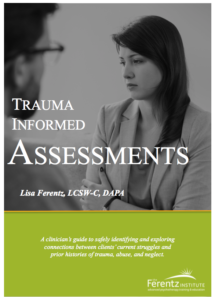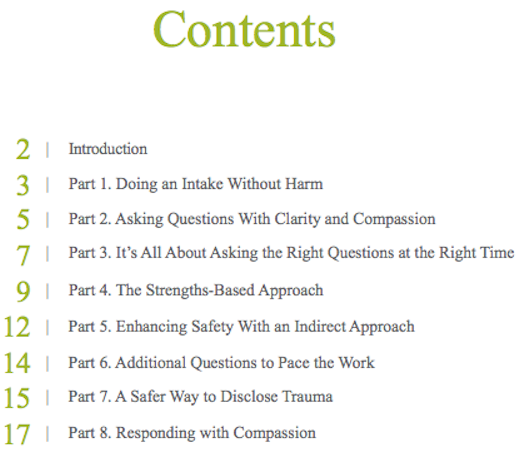A clinician’s guide to safely identifying and exploring connections between clients’ current struggles and prior histories of trauma, abuse, and neglect.

The ubiquitous buzzword in the mental health field is “trauma-informed care.” This is an exciting and necessary step in ethical, well-paced treatment for traumatized clients. However, in the earliest stages of therapy, knowing how to engage in a “trauma-informed assessment” is just as important. Clinicians often feel pressured by their practice settings to obtain intimate and personal information as quickly as possible for the purposes of “assigning the case.”
This is done without first establishing a context of trust and safety, and with little regard for the impact that prematurely revealing a trauma narrative has on a prospective client who has found the courage to seek out treatment. This clinician’s guide will help you to safely identify and explore connections between clients’ current struggles and prior histories of trauma, abuse, and neglect, while still respectfully pacing the work and avoiding de-stabilizing traumatized clients.
Use the form below to download the e-book:
By submitting this form, you are consenting to receive marketing emails from: . You can revoke your consent to receive emails at any time by using the SafeUnsubscribe® link, found at the bottom of every email. Emails are serviced by Constant Contact
Do you need a clinical framework for assisting clients in understanding the root causes of guilt and shame? Click here.

